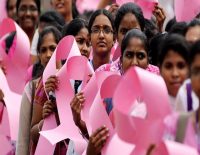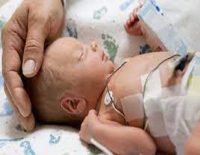Health Ministry to set up expert committee on Spinal Muscular Atrophy

Dr. L Swasticharan, Addl. DDG with DGHS, health ministry, has said that ministry is actively considering establishing a specialized Technical Expert Group focusing on Spinal Muscular Atrophy, a rare and genetically inherited neuromuscular disease that robs people of physical strength by affecting motor nerve cells in the spinal cord.
“Called Tech MSA, the Group will advise centers of excellence on rare diseases spread across the country on what needs to be done regarding SMA and provide technical inputs. If we can successfully solve the challenge of SMA, the same model can be replicated for other rare diseases in the country,” he said while speaking at a two-day National Conference on Spinal Muscular Atrophy (SMA).
“A rare disease fund has been established by the Government to support treatment of patients. In 2022-23, we supported 203 patients to the tune of Rs 35 crores, a big leap from zero funds three years ago. In 2023-24, this amount rose to Rs 74 crores. In the current fiscal, a budget of Rs 82.4 crore has been assigned for the purpose, out of which Rs 34.2 crore has already been disbursed. However, we realize that even this is not sufficient as we don’t want to leave any patient behind,” he said.
Moumita Ghosh, Co-founder & Director, Family Support & Events, Cure SMA Foundation of India: “Around 4,000 children are born every year with SMA in India. It is the number one genetic cause of death for infants. The US FDA approved the first-ever drug for SMA in 2016. The Cure SMA Foundation of India was established to ensure that all patients of SMA get medicines for treatment. Accessibility, affordability, supportive care and delayed diagnosis remain a huge challenge. The ultimate solution lies in indigenous research but that will take several decades. Meanwhile, we cannot just leave the current patients to deteriorate and die.”
Dr. Rakesh Mishra, Director, Tata Institute for Genetics and Society (TIGS), said “We are collaborating with Cure SMA Foundation to find solutions to some of the problems of SMA patients. Delayed diagnosis is a major issue associated with rare diseases, and it can take several years for appropriate diagnosis of a rare disease. We are working towards development of cost-effective diagnostic assays that can accurately diagnose SMA and its type.”
The Conference hosted two symposiums with 12-15 sessions each for patients and families as well as policy makers, clinicians, researchers, therapists, orthotics, educationists (to cover inclusive education), and firms offering assistive and mobility aids.







